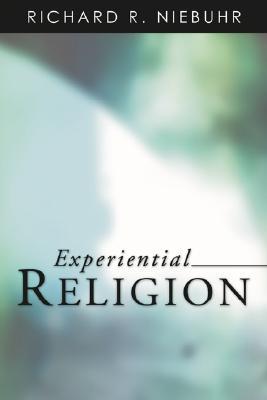

 |

|

The average rating for Experiential Religion - Richard R. Niebuhr - Paperback based on 2 reviews is 4.5 stars.
Review # 1 was written on 2019-11-28 00:00:00 Kristin Currey Kristin CurreyThere's no way to avoid it: this book is dense and complex and, if you are reading it at the end of a full workday as I was, it takes time to get through. It comes with the full academic panoply of source study and footnotes and linguistic analysis. I have a doctorate in Russian history, and it still took me months to finish it. Don't let that deter you. This is one of the best books I have ever read on Eurasian culture. It looks at a series of myths that begins with the Tatars' conversion to Islam and explores how these myths develop into epic tales of a heroic community ancestor. In the process, the author makes several important points. First, he argues that religious stories have little to tell us about historical events (that is, their importance does not lie in some supposed historical core) but a lot to tell us about what a given community values. Second, he explores the blending of the new religion—in this case, Islam, but he also shows the same mechanism at work in the Uighurs' adoption of Manicheanism—with traditional definitions of community and stresses that the adoption of Islam was a community decision aided by Islam's own emphasis on community. He details three stages of incorporation for the new religion and traces how the Islamizing myth became encrusted with elements from traditional Inner Asian legends (the World Tree, the World Mountain, Water, and the feminine ancestor guardians in the person of swan maidens, air spirits, and protective animals). Third, he points out that modern scholars' belief that Inner Asian peoples saw empire as the ideal political state, attained only sporadically but always the goal, is backwards: in fact, these myths reveal the assertion of community in an attempt to weld fundamentally disparate and independent tribes into a larger whole. Islam, as a world religion, is one larger community of this type. The intermittent and often short-lived steppe empires are another. The insights from this book—in particular, the importance of female ancestors—were crucial in developing my second novel, The Golden Lynx. The political arguments play an even greater role in the first of my four sequels to that book, The Winged Horse (not yet published). And I can see that I will continue to rely on it throughout the series. So even though it's undoubtedly not for everyone, anyone who has an interest in cultural difference and assimilation, the societies of Central and Eastern Asia and the steppe, and the innovative use of historical sources should seek it out. |
Review # 2 was written on 2019-11-04 00:00:00 Mr. Azeem Ali Mr. Azeem AliExtremely dense in both good and bad ways. A necessary work to have and read by steppe history fans like myself. |
CAN'T FIND WHAT YOU'RE LOOKING FOR? CLICK HERE!!!